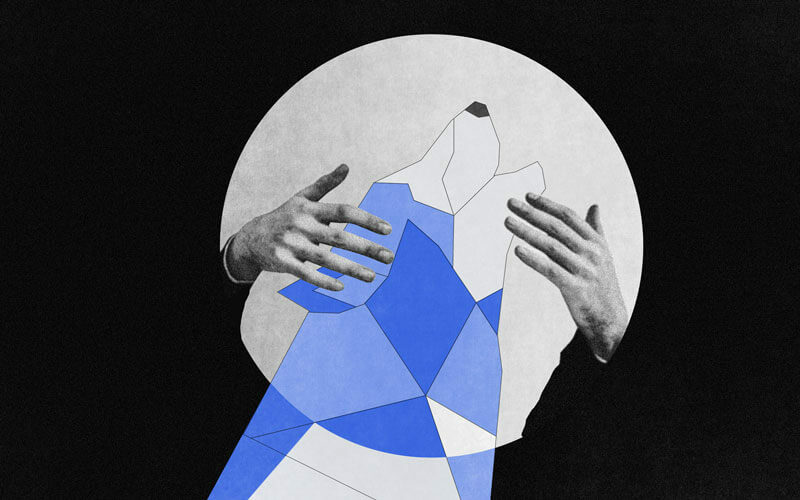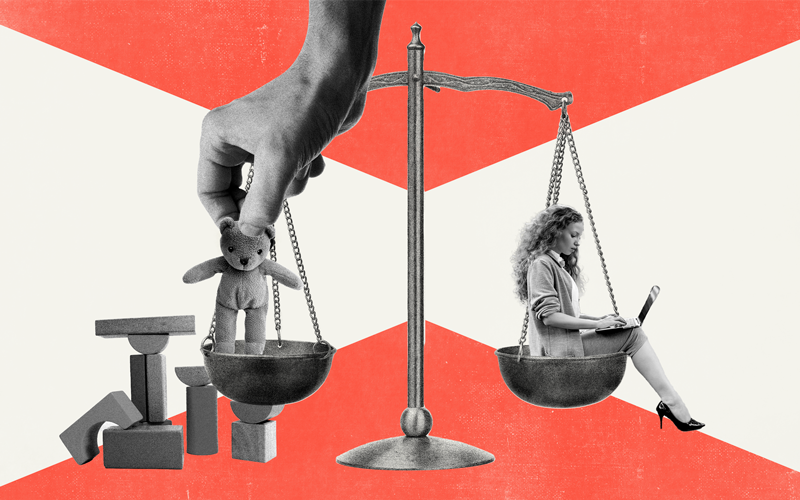VC and Triangulate founder Sunil Nagaraj said: “Starting a company is always an irrational decision”. His answer? “A handhold that you can grab onto to help climb the mountain is really, really helpful”.
Starting up is stressful and sole founders have it the worst. You go in thinking a cofounder will only cause conflict or you “just work better alone”. But the load gets bigger, the nights get longer, and many end up discovering that lone working is just as destructive as a failed partnership.
The problem is, it’s never just the physical isolation. It’s having a mission that only exists for you. No one to celebrate the triumphs or mourn the losses with. No one who really “gets it” like you do. Shared missions are good for our caveman brains. Fighting a one-man battle is never quite as rewarding.
So how do you tackle loneliness as a sole founder?
First, we need to understand why you should tackle it rather than soldiering on. Because it’s a point that needs to be hammered home.
- Loneliness is really bad for you, especially for your mental health.
- We know that loneliness can increase your odds of dying prematurely by 14%.
- Lonely people have less effective immune systems.
- And loneliness affects your productivity (particularly unhelpful when you’re trying to get a business off the ground).
Why do startups have to be so lonely?
Causes of startup loneliness fall into 3 broad categories: small teams, long hours, and moving around.
In seed stage, it’s you against the world. You’re working so hard you forget to interact with the outside world (or even your inside world like friends and family). You’ll need to go where opportunity calls, so you’ll likely be travelling around or even permanently moving.
This isn’t even considering how much worldly interaction has moved to the web. What would’ve been a coffee meet becomes a Face Time chat. Conferences, seminars, interviews – all held online. Zoom culture has lingered, often unnecessarily, because it’s easier and quicker than unshackling yourself from your desk.
But we don’t get the same social rewards through a screen. We don’t get to make proper eye contact or shake a potential investor’s hand.
If any of the above is describing your #founderlife, you’re not alone, and you’re not condemned to it.
But improving your situation will require you to stop working for a second.
Get out there and network… is what we’re not going to advise
Networking is a special kind of hell for many people. We all know you can feel more lonely in a crowded room than sitting alone. If you’re not great at meet-and-greets, clutching a coffee in the corner is only going to compound your isolation.
Not to mention the fact most people aren’t there to connect on a personal level. Business events have singular goals – network expansion, lead generation, and ultimately, money-making. At best, they’re friendly with an undertone of “what can I get out of this?”. At worst, they’re competitive, cold, or awkward, leading us to feel stressed or like social failures.
You need a break from selling yourself. Gumroad founder Sahil Lavingia summed it up pretty well when he said you need to “hang for no reason”.
Join a support group
It can feel like a weird concept, and it’s hard. Because like an AA meeting or bereavement group, you have to admit you need help.
Far from an act of desperation, support groups are really cool because you get to help other people too (who might be even worse off than you). It’s a safe space to practice vulnerability (which leads to deeper connection) rather than striving to impress all the time. Here, there’s no ulterior motive. It’s just healthy socialisation and a helping hand.
Support can come in other ways, such as just finding a crew with similar interests. Even in the digital world, these can also manifest as something like an online group on LinkedIn or Slack. Have a browse and see what kind of digital and physical spaces are available, where you can really cultivate a meaningful social network.
It’s sometimes okay to talk to strangers
A coworking space is a godsend for the lonely if your operation allows. Most have pretty accepting cultures where you can either spread your social wings, or put your headphones in and work quietly when you need to. There’s no obligation. Sometimes it’s just about that “hello” in the morning, a shared coffee, or someone sitting next to you while you work away.
For the non phone-phobic, Quarantine Chat connects you to a random person by phone. Facilitating “serendipitous conversations” where you can chat about “what you’re cooking, your dreams, or the global economy”, this was a pandemic lifeline that’s still getting a lot of mileage.
In the UK, ADHD Hive hosts virtual coworking groups, socials, and supportive chats for neurodivergent people. A major part of this specialism is acting as “accountability partners” for the tasks ADHD sufferers struggle to get done. It also hosts a podcast where they chat about the “what ifs” that neurodiverse people can get hung up on (what if I’d taken that job, what if I hadn’t dropped out of Uni, etc).
Swap crutches for good habits
There’s a reason social media has exploded so wildly and why it’s harming us at epidemic levels. It’s a substitute for real world interaction and self-expression.
Social scrolling makes us feel like we’re connecting with our friends. But it’s an illusion. We’re seeing tiny, pixelated snapshots of their lives through a screen. And they’re so carefully curated, they paint a convincing picture that their lives are much more fun and they’re much more successful and they’re much better looking.
It’s a true recipe for disaster. A heart emoji is not a conversation. It’s not always possible to swap scrolling for an IRL meet (otherwise we’d all be doing it, right?), but a phone call, text convo, or something diverting like an enriching YouTube series is a better substitute.
Another natural crutch is what we’re doing most of the time anyway: working. You can’t feel lonely if your focus is swallowed by tasks.
It’s obvious why this one’s a bad one – the feelings don’t go away, they just get smashed down. We also lose energy for the things that will help us – eating properly, exercising, going to bed early.
Consider your staffing capabilities
It’s early days and the budget is tight. If you can’t take on a permanent staff member to share the load, consider a temp or an apprentice. Even a virtual assistant can lend that nice team-working vibe (and help you distribute your day-to-day).
A more serious alternative is finding a cofounder. This naturally raises big questions: do I really want to share control? How will splitting the equity work? What if I put my faith in the wrong person?
It’s a risk that needs close consideration, but in truth, we tend to work better with someone else balancing our perspective and informing our decisions (even if we don’t like to admit it). A cofounder brings a new skill set and acts as backup in boardroom meetings. If you can relinquish the reins a little, a cofounder can transform your experience for the better.
Pass your healthy habits onto your team
Huge success at the cost of your staff’s mental health is a hollow victory. The most important legacy you can leave is a tribe of happy people.
There’s no expectation to be equipped to handle the nuances of mental health. But there’s no excuse not to invest in it. Spill is an amazing resource that runs therapy sessions through Slack. Staff can book into hour-long therapy sessions (better than a tense 1:1 with a line manager). It also provides training on how to handle difficult situations and create a healthy emotional culture.
Self-advocate for your mental health
This one’s the hardest, because it means identifying when you’re tipping over from garden-variety loneliness into something more serious. And sometimes that’s clear as mud.
One signifier is an increase in bad habits. If you’re prone to doom scrolling, overeating, or compulsive gym-going, pay attention when those behaviours go from occasional slip-ups to regular occurrences.
Booking therapy is a huge step. It takes a lot of mental prep to get to the point of readiness. If you suspect you could use a helping hand, start small.
The Blackdog Institute’s myCompass app helps you track your wellbeing across 4 areas: depression, anxiety, stress, and sleep. You can choose learning exercises from 14 different subjects, and they subtly teach you CBT methods along the way. There are no appointments to keep – ideal for the frazzled founder.
ReachOut WorryTime gives you a dedicated time slot to worry. Rather than letting worries lurk around all day, the app lets you record them so you won’t forget, and then carry on with your day.
It’s important to remember that no matter how entrenched you are in your business, you need to be looking after yourself first and foremost. Fortunately, we live in an era where several digital tools and counselling options are available. When things get a bit tricky during your journey, you can reach out to the folks at Lifeline, Beyond Blue, or complete a free online self assessment at MindSpot.











